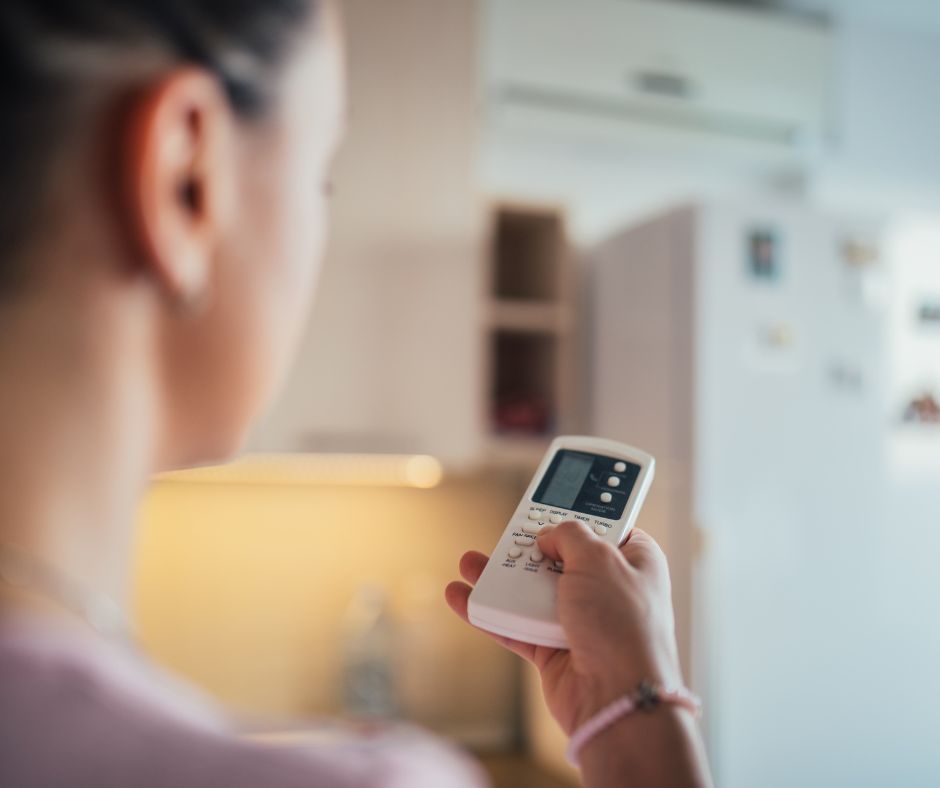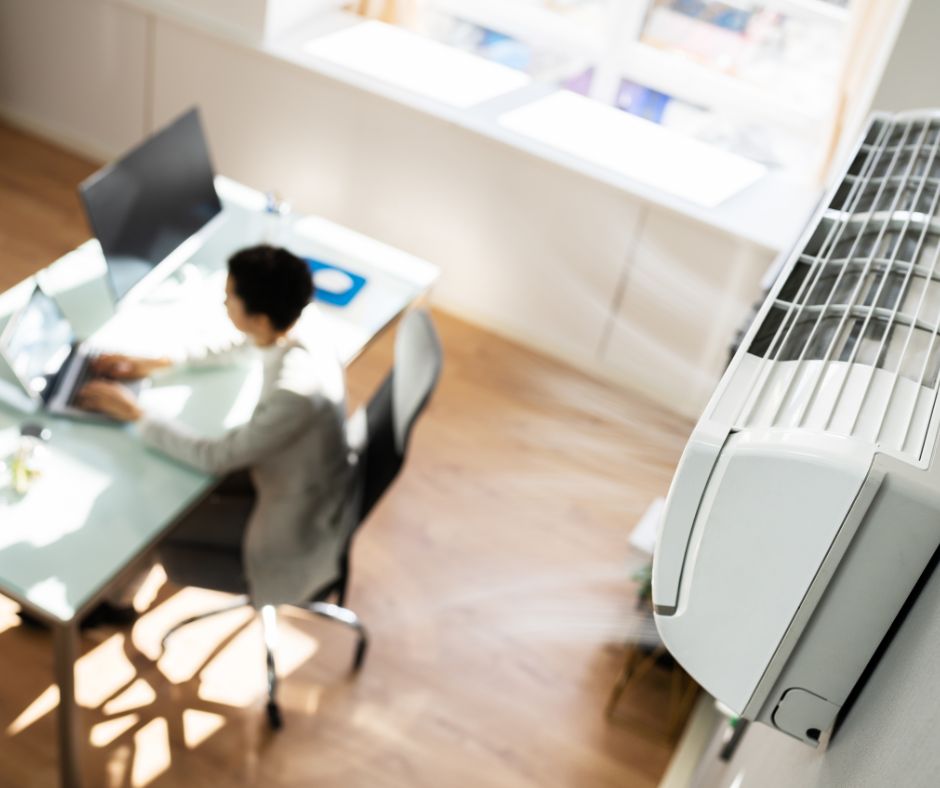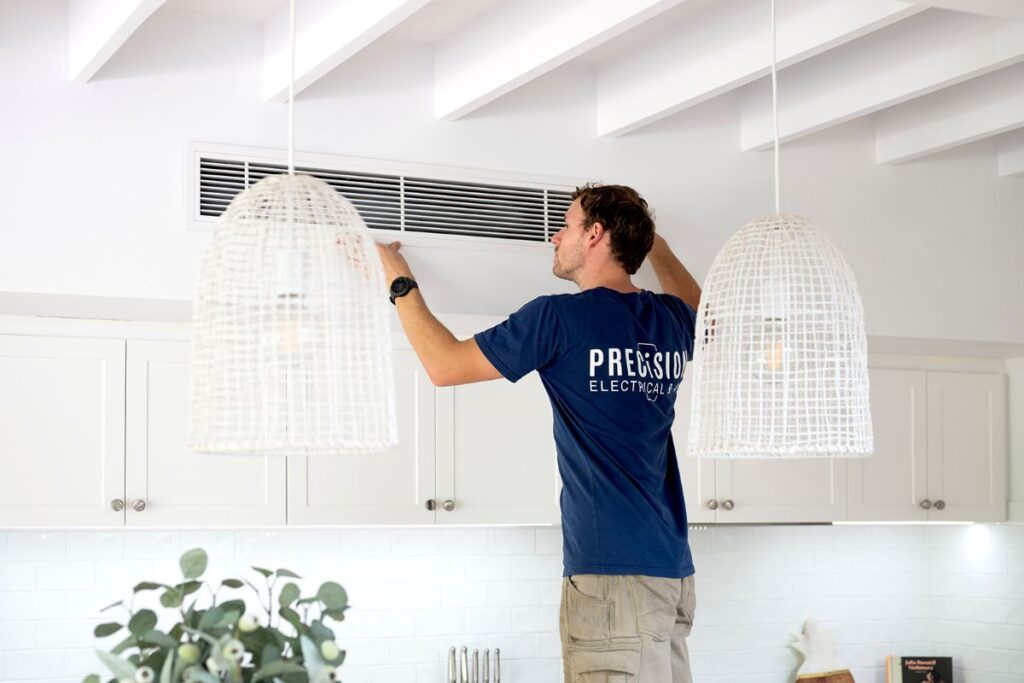Mastering Climate Control in Brisbane: Your Ultimate Guide to Customised HVAC Solutions Residing in Brisbane requires more than just basic comfort; it necessitates the mastery of precise climate control that complements your lifestyle. With the intense summer humidity, sporadic storms, and unexpectedly cool winter evenings, each residence in Brisbane needs an HVAC system that is not only designed for optimal performance but also for enhancing your day-to-day living experience. Precision Electrical & Air presents this comprehensive guide on HVAC systems and their crucial role in improving indoor living conditions amidst Queensland’s distinctive subtropical climate.

Understanding the Multifaceted Nature of HVAC: Heating, Ventilation, and Air Conditioning Explained
HVAC stands for Heating, Ventilation, and Air Conditioning, encompassing a wide array of systems and technologies crafted to maintain the ideal indoor temperature, humidity levels, and overall air quality in your home or workplace. Many individuals mistakenly equate HVAC solely with air conditioning; however, it is essential to appreciate that in Brisbane, where humidity management and consistent air circulation are critical throughout the year, the scope and significance of HVAC systems extend well beyond mere cooling, profoundly influencing both comfort and health.
During the scorching 35-degree days of summer, or while dealing with the humidity brought on by a subtropical storm, your HVAC system diligently works to provide clean, conditioned air that flows effortlessly through every room in your home. Optimising this system is crucial for enjoying a comfortable and healthy living environment that caters to your needs and preferences, ensuring that you and your family can thrive indoors, regardless of the weather outside.
How HVAC Systems Function Efficiently in Brisbane’s Unique Climate Conditions
HVAC systems typically operate by conditioning the air—either heating or cooling it—and subsequently circulating it throughout your home via ductwork or directly into individual rooms. These systems can be broadly categorised into two main types: ducted and split systems, each offering distinct advantages based on your property type and specific requirements.
- Ducted HVAC Systems: These comprehensive systems feature a central unit that adeptly distributes cooled or heated air through concealed ducts located within ceilings or walls, making them particularly suitable for larger homes or multi-room configurations where consistent temperature control is paramount.
- Split System Air Conditioning: Ideal for individual rooms or smaller apartments, these systems consist of an outdoor compressor and an indoor unit mounted on the wall. They are both cost-effective and energy-efficient, making them a popular choice among Brisbane residents seeking targeted comfort without the complexities of larger systems.
In the unique climate of Brisbane, both types of systems must effectively manage extreme humidity levels. Fortunately, most modern units automatically dehumidify the air during the cooling process, which is essential for preventing issues such as mould growth, unpleasant odours, and sticky discomfort that can detract from your indoor living experience.

The Critical Role of Adequate Ventilation in Brisbane Homes
Ventilation is often undervalued as a vital component of the HVAC system, yet it plays an essential role in the health and comfort of Brisbane homes. The combination of high humidity levels and tightly sealed structures can lead to stale air, the buildup of trapped pollutants, and even structural damage caused by condensation, making proper ventilation indispensable for maintaining a healthy indoor environment.
Mechanical ventilation systems, such as energy recovery ventilators, are designed to circulate fresh air throughout your home without the need to open windows. These systems efficiently extract stale, moisture-laden air and replace it with filtered, temperature-controlled fresh air. This function is especially critical during Brisbane’s wet season, as opening windows can inadvertently exacerbate indoor humidity levels.
Moreover, natural ventilation strategies hold significant value in Queensland homes. Take, for example, the traditional Queenslander architecture, which was designed to maximise airflow by being elevated to catch breezes. Features like cross-ventilation through louvre windows, whirlybirds for roof cavity circulation, and shaded eaves enable homes to naturally breathe while minimising excessive heat penetration, ensuring a comfortable indoor atmosphere year-round.
Exploring the Diverse HVAC System Types Available for Brisbane Residents
1. Split System Air Conditioners
- Perfectly suited for individual rooms or spacious open-plan living areas where targeted cooling is most beneficial.
- Available in both cooling-only and reverse cycle variants, ensuring year-round climate control for residents.
- Often equipped with ionisation or anti-microbial filters to effectively combat allergens and significantly improve air quality.
2. Ducted Reverse Cycle Air Conditioning
- Ideal for families desiring consistent comfort across multiple zones, accommodating diverse temperature preferences for each member of the household.
- Integrates seamlessly with smart thermostats, promoting energy efficiency and convenience in managing your home's climate.
- Can be customised with additional ventilation and filtration options tailored to meet specific needs and preferences, ensuring optimal indoor air quality.
3. Evaporative Cooling Systems
- While these systems are generally not recommended for Brisbane due to its high humidity levels, they are still utilised in drier regions such as Ipswich or Toowoomba.
- These systems operate by using water-soaked pads to cool the air, which is then distributed through ducts for cooling purposes.
- Effective operation necessitates open windows or roof vents to allow the humidified air to escape, which may not be practical considering Brisbane's climate.
4. Heat Pumps
- Frequently employed for hot water systems, heat pumps can also be integrated into comprehensive HVAC solutions, enhancing overall efficiency.
- These systems are highly efficient at extracting ambient heat, even during Brisbane’s mild winter months, ensuring comfort throughout the year.
5. Mechanical Ventilation Systems
- Includes a variety of devices such as fans, ceiling fans, extraction units, and heat recovery systems designed to improve airflow.
- Essential in many energy-efficient homes to prevent the buildup of stale air and maintain optimal indoor air quality.
- Particularly advantageous in areas such as bathrooms, kitchens, and bedrooms where air quality is crucial for comfort and health.

Understanding the Importance of Indoor Air Quality in Brisbane Homes
Humidity has a significant impact on indoor air quality by attracting airborne contaminants such as mould, bacteria, and dust mites. Therefore, selecting the appropriate air filtration and air conditioning settings is essential for maintaining a healthy indoor environment:
- Ionisation Filters: These filters generate charged particles that adhere to pollutants, making them easier to capture or break down. They are particularly beneficial for standard homes facing mild allergy issues.
- HEPA Filters: These dense, hospital-grade filters effectively capture microscopic particles including pollen, fine dust, and viruses. However, their restrictive airflow makes them more suited for standalone purifiers rather than larger air conditioning systems.
- Carbon Filters: These filters help eliminate odours and volatile organic compounds, making them especially useful in kitchens and areas adjacent to garages where unpleasant smells can linger.
Modern residences in Brisbane often incorporate multi-stage filtration systems within their HVAC units to combat outdoor pollution, pet dander, and various allergens, thereby ensuring a healthier living environment for all residents and enhancing overall well-being.
Optimising Energy Efficiency with Smart Thermostats and Zoning Solutions in Brisbane Homes
As energy costs continue to rise, implementing zoning and smart climate control solutions has become increasingly critical for homeowners. A zoning system divides your home into distinct areas that can be cooled or heated independently, providing tailored comfort for each space. When integrated with a smart thermostat, this system enables:
- Individual temperature control for each room, significantly enhancing comfort and energy efficiency.
- Scheduled climate adjustments tailored to your lifestyle, ensuring optimal energy use throughout the day.
- Mobile app access for remote management, providing unparalleled convenience for busy homeowners.
- Automatic eco modes that adapt to Brisbane’s temperature fluctuations, effectively minimising energy waste and maintaining comfort.
This combination not only conserves energy but also reduces the strain on your HVAC system, thereby delivering enhanced comfort that perfectly aligns with your unique living patterns and preferences.
Essential Components That Make Up Your HVAC System
- Air Handler: Responsible for efficiently moving air through the HVAC system to ensure even distribution of conditioned air throughout your home.
- Compressor & Condenser: These components work together to extract heat from inside your home, playing a crucial role in the cooling process by efficiently removing unwanted warmth.
- Evaporator Coil: This coil absorbs heat from the indoor air, contributing significantly to the overall cooling process and enhancing the efficiency of your system.
- Refrigerant: A vital component that facilitates the transfer of heat between the indoor and outdoor units, enabling efficient cooling and ensuring comfort in your home.
- Ductwork: This network carries conditioned air throughout your home, ensuring that every room achieves the desired comfort level efficiently.
- Thermostats: These devices are essential for setting and maintaining the desired indoor climate, allowing you to customise your comfort settings effectively.
- Vents and Registers: These components effectively distribute and return air within the system, maintaining a balanced airflow that is crucial for comfort and efficiency.
Essential HVAC Maintenance Tips for Brisbane Homeowners
- Regularly clean or replace filters monthly during peak usage seasons to maintain system efficiency and improve air quality.
- Schedule professional air conditioner servicing well before summer arrives to ensure optimal performance and prolong the lifespan of your system.
- Ensure that ducts are securely sealed and that insulation is intact to prevent energy loss and air leaks, which can lead to increased energy bills.
- Regularly clear any debris surrounding external condenser units to maintain airflow and prevent overheating, ensuring your system operates smoothly.
Given the high humidity and presence of subtropical pests, outdoor units can be affected rapidly; therefore, proactive maintenance is paramount for the longevity and reliability of your HVAC system in Queensland’s challenging climate.

The Indispensable Function of HVAC Systems in Brisbane Living
HVAC systems are not merely about cooling; in the context of Brisbane, they represent a comprehensive approach to effectively managing moisture, airflow, temperature fluctuations, and air quality.
Precision Electrical & Air specialises in designing systems that cater to these unique needs while delivering energy savings and long-term reliability.
From efficient split systems to ducted air conditioning solutions featuring zoned control and advanced filtration options, we ensure that the residents of Brisbane enjoy year-round comfort that aligns perfectly with their specific climate and lifestyle requirements, allowing you to breathe easily and live comfortably.
The Article: HVAC in Brisbane: Insights on Heating, Ventilation & Air Conditioning first appeared on https://writebuff.com
The Article HVAC Insights: Heating, Ventilation & Air Conditioning in Brisbane Was Found On https://limitsofstrategy.com
Comments are closed